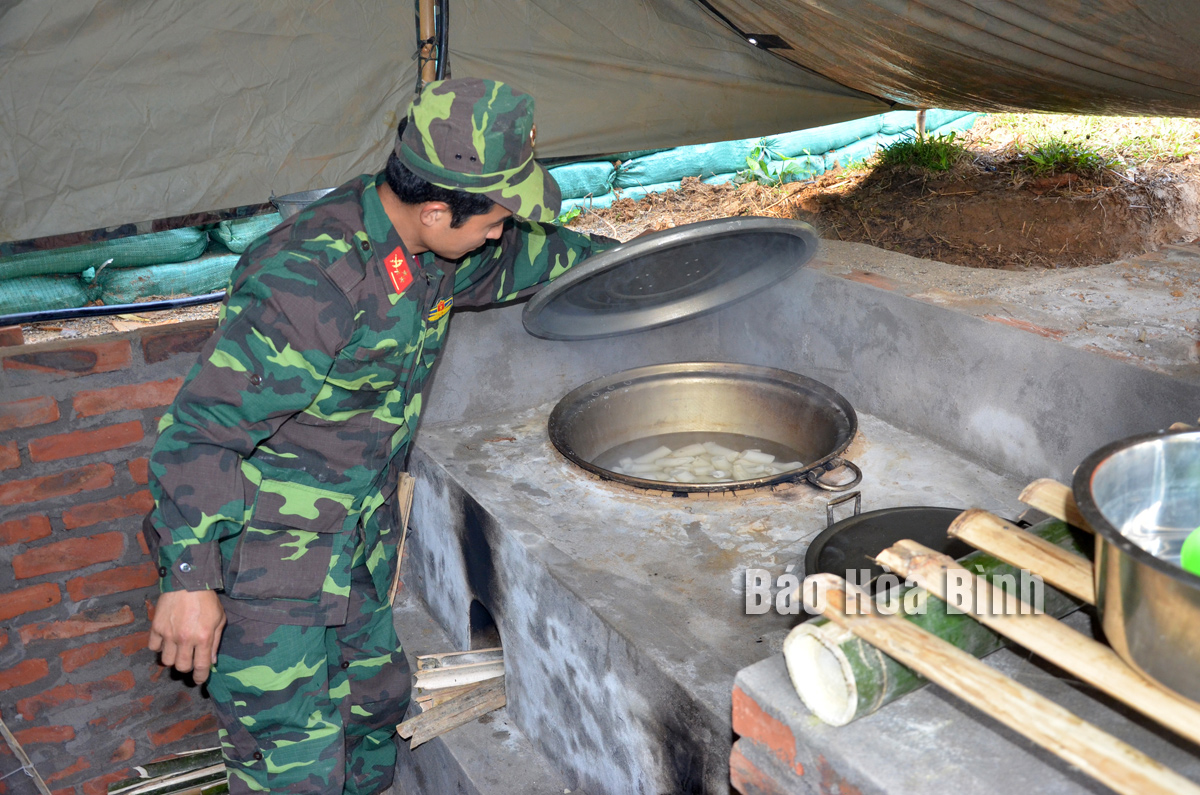
Smokeless 'Hoang Cam' kitchen was a small yet extremely significant initiative of a soldier chef named Hoang Cam in the Hoa Binh campaign in 1951 – 1952. This legendary stove, later named after him, accompanied the nation in the 1954 Dien Bien Phu Campaign, and during the resistance war against the US.

"Hoang Cam” stove ensures hot meals for soldiers in training, combat
readiness.
General Vo Nguyen Giap said that when mentioning
the Hoa Binh campaign, it would be a mistake not to mention the initiative that
brought about very important improvements for the meals of soldiers.
During the Hoa Binh campaign, Hoang Cam, a
soldier chef at Infantry Division 308, invented astove intake and chimney
system which diffused and dissipated smoke from cooking, thus preventing aerial
detection of smoke by military planes. The smoke from the stove rising through
the chimney system is only a thin strip that quickly dissipates as it leaves
the ground.
The "Hoang Cam” stove quickly became popular
among units, especially in Dien Bien Phu Campaign.
The invention helped chefs cook during the day
even when enemy reconnaissance planes flew overhead. The stove was effective in
all subsequent campaigns, even in the resistance against the US.
Many veterans said that without the Hoang Cam
stove, cooking meals to ensure the health of soldiers would still be very
difficult.
With this initiative, soldiers were able to take
hot meals and hot water in winter, and field military medical stations had hot
water to sterilise medical instruments. This initiative held significant value
in practical military operations and combat, contributing to maintaining the
health and the number of soldiers in long campaigns.
The use of the "Hoang Cam" stove in combat
was proven effective during the Dien Bien Phu Campaign, ensuring secrecy and
surprise, and avoiding detection by enemy aircraft, thereby minimising
casualties for the military.
In the spirit of "Party members go first, the people follow”, all households of Party members in the Doan Ket sub-region in Da Bac town, Da Bac district, voluntarily removed gates and fences, and donated land when the road expansion project passed through their properties. Inspired by their example, 68 households in the sub-region quickly followed suit, contributing over 1,400 sq.m of residential and perennial cropland to widen the main road through the residential area. The exemplary role of Party members in Doan Ket stands as a shining example of studying and following President Ho Chi Minh’s thought, morality, and lifestyle.
The Hoa Binh provincial People's Committee held a monthly meeting on May 29 to assess the implementation of socio-economic development tasks in the first six months of 2025, the progress of key projects, and some other important issues.
During his lifetime, President Ho Chi Minh always expressed his deep affection and special concern for children and youth. He once emphasized: "Caring for and educating children well is the responsibility of the entire Party and the entire people”; "First of all, the family (i.e. grandparents, parents, siblings) must do this job well”. "the Party Committees…, the Children’s Committee, the Youth Union, the education sector, and all related organizations must have specific plans to ensure children grow healthier and more progressive”. His teachings has been remaining valuable and serving as the guiding principles in the work of protecting, caring for, and educating children. In line with this ideology, Hoa Binh Province has continuously been prioritizing and investing resources in the well-being of children in recent years.
Mr. Nguyen Phi Long, the alternate Member of the Party Central Committee and Secretary of the Provincial Party Committee chaired the meeting of the Standing Committee of the Provincial Party Committee to provide opinions on several investment projects within the province. There was the attendance of Ms. Bui Thi Minh, the Permanent Deputy Secretary of the Provincial Party Committee and Chairwoman of the Provincial People’s Council; Mr. Bui Đuc Hinh, the Deputy Secretary of the Provincial Party Committee and Chairman of the Provincial People’s Committee and other members of the Standing Committee; the leaders from other departments, agencies, and some localities.
The Standing Board of the Vietnam Fatherland Front (VFF) Committee of Hoa Binh province held a meeting on May 28 to honour outstanding village elders, village heads, and reputable individuals from local ethnic minority and religious communities.
In mid-May, the provincial Museum organised an exhibition named "Duoi la co Dang Cong san Viet Nam quang vinh” (Under the flag of the glorious Communist Party of Vietnam). This meaningful activity took place in the joyful atmosphere to celebrate the country's major holidays and the Party congresses at all levels for the 2025-2030 term, towards the 14th National Party Congress.



